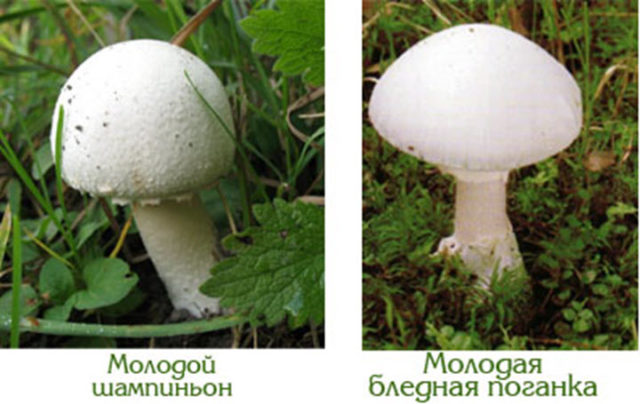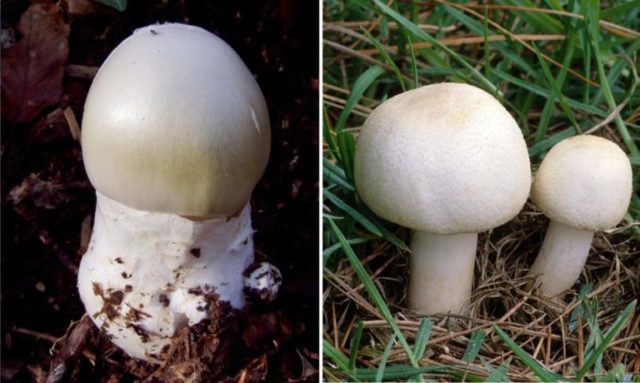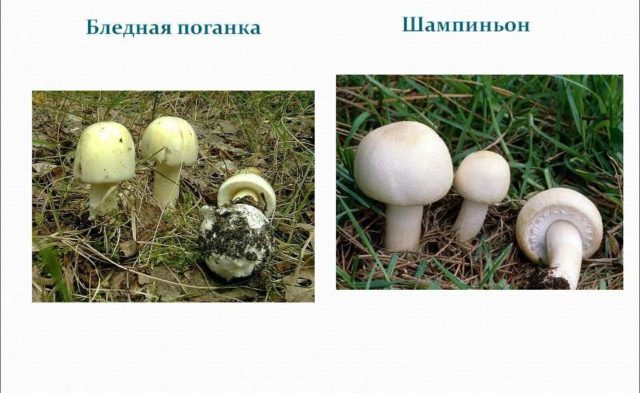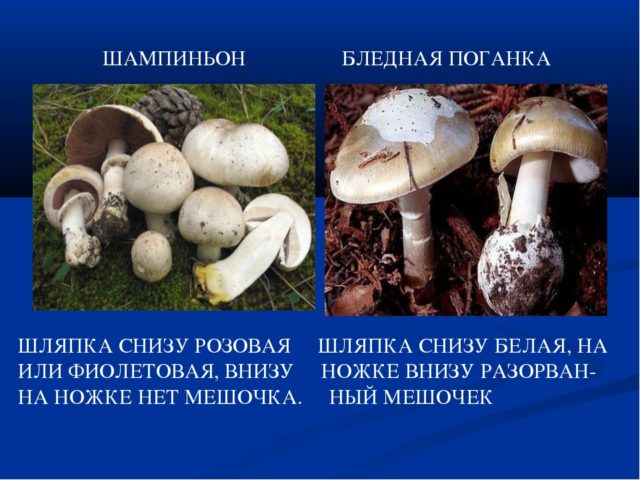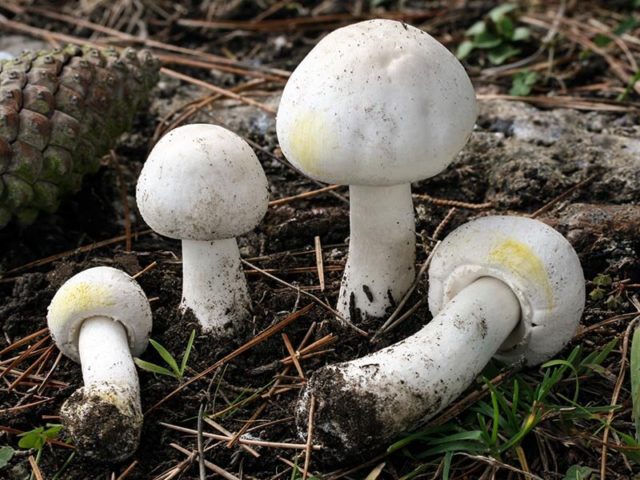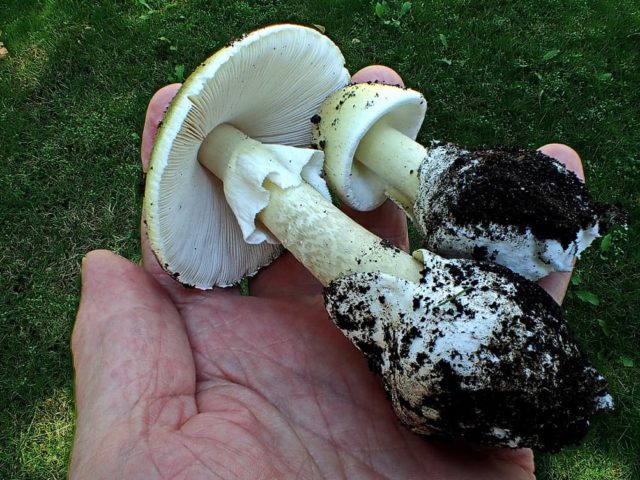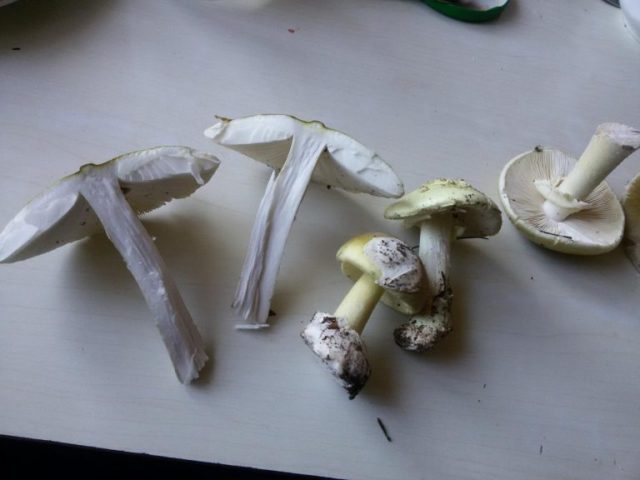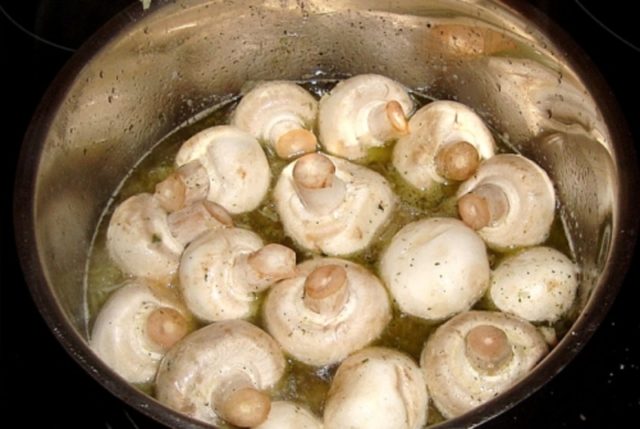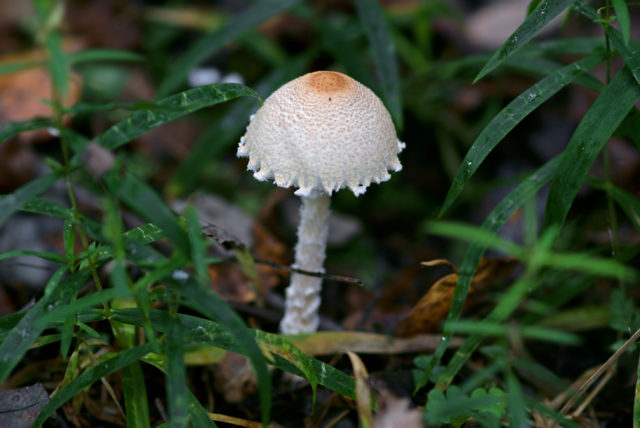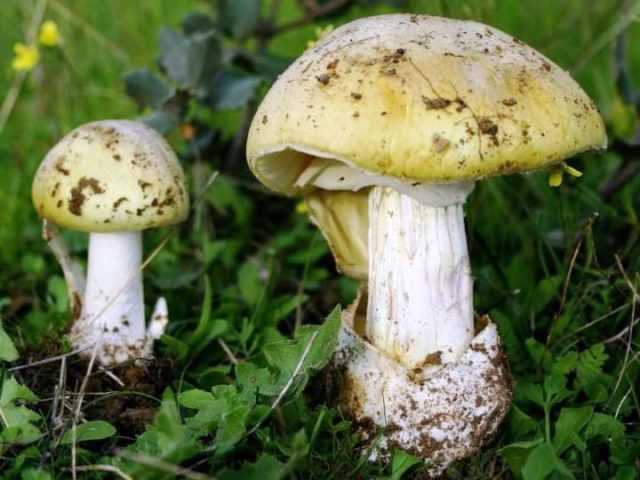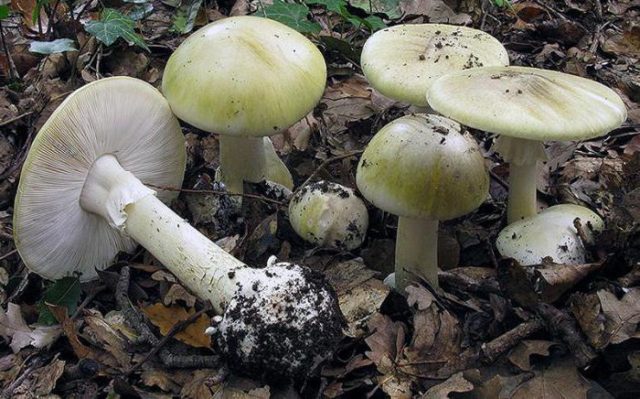Content
The similarities and differences between pale toadstool and champignon must be clearly understood by every novice mushroom picker. One of the most popular edible mushrooms and the deadly pale toadstool are very similar in appearance, accidental picking mistakes can be fatal.
What are the similarities between pale toadstool and champignon
With a huge difference in nutritional value, it is not so easy to distinguish between outwardly edible and inedible find. Without much experience, it is very easy to confuse the fruiting bodies, since they are similar:
- structure and size;
- coloring of the cap and legs;
- structure and density of the pulp;
- places and terms of growth.
The similarities and differences between pale toadstool and champignon should be studied in more detail. This will allow you to find out exactly what features during collection you need to look closely, how to distinguish one fruiting body from another.
By the place of growth
Both the pale grebe, which is also called the white or green fly agaric, and the delicious edible champignon can be found throughout Russia in a temperate climate. Varieties choose the same places for growing, you can find them on forest edges, on the sides of country roads, in meadows and lawns, in fields with small groups of shrubs.
Moreover, both the edible mushroom and the green amanita usually grow in small groups of several mushrooms. Sometimes varieties can be located adjacent to each other, which makes it even more difficult to distinguish them.
Seasonality
An edible and safe mushroom begins to grow in early summer, it can be found from the end of May to November. The white poisonous fly agaric appears in meadows and fields later - from August to November.
Thus, in spring and early summer, it is quite easy to distinguish fruiting bodies - poisonous ones usually do not grow until August. But closer to autumn, fruiting begins to intersect, and it becomes more difficult to distinguish between them.
Outward appearance
Edible and poisonous fruit bodies have the greatest similarity in appearance, which is why they are so difficult to distinguish. Similar signs include:
- the diameter and shape of the cap - in both mushrooms it will grow up to 12-15 cm wide, in young fruiting bodies it has rounded convex outlines, straightens and flattens with age;
- the height and shape of the leg, both mushrooms rise 7-15 cm above the ground, while the leg of both is cylindrical and even, with a ring closer to the upper part;
- color - caps and legs have a white, light brown or yellowish tint;
- pulp - in both varieties of fruit bodies, it is dense and white;
- lamellar structure - the underside of the cap in fruit bodies of both species is covered with thin frequent plates;
- thickening at the bottom of the leg.
What is the difference between pale toadstool and champignon
Despite the fact that it can be difficult to distinguish a deadly poisonous mushroom from an edible one, there is still a difference, and it is quite large. It is enough to properly study the comparison of pale toadstool and champignons in order to accurately determine the type of find.
In appearance
There are several signs by which the champignon and the deadly poisonous white fly agaric can be distinguished externally:
- Despite the same structure and size of the leg, in the pale toadstool it is usually thinner and less fleshy.
- The thickening in the lower part of the leg of the pale toadstool is a volva - a kind of sac from which the poisonous white fly agaric is born. The edible mushroom does not have such a sac; the leg simply thickens at the surface of the earth.
- The color of the top and bottom of the cap of the toxic white fly agaric is the same - white, slightly yellowish or greenish. But in an edible mushroom, the flesh under the cap is slightly pinkish.
An adult champignon has a small dent in the center of the cap. In contrast, the grebe has a tubercle in this place, although it may be smoothed and poorly distinguishable, which does not allow clearly distinguishing the difference.
By smell
If you smell a pale toadstool, then you will not be able to feel any specific aroma, it smells almost nothing. And from the edible pulp comes a tangible and rich mushroom smell with a slight almond tint, which allows you to correctly distinguish a safe fruit body.
When cut
If you cut the cap of an edible champignon, it will quickly darken, and the pale toadstool will remain white on the cut. The leg of the edible fruiting body is homogeneous at the break, and the poisonous white fly agaric has a kind of core inside the leg - a section of pulp, which is very different in structure.
Fruiting bodies can also be distinguished by the degree of pulp elasticity. In edible mushrooms, it is dense and elastic, and in a poisonous white fly agaric it crumbles strongly.
When cooking
If the species of the mushroom has raised doubts after it was brought from the forest, you can distinguish the pale toadstool in the following way. The suspicious fruiting body is placed in water along with a small onion, placed on the stove and waited for the water to boil.
If the onion in the pan turns a little blue, then there is no doubt that there is a pale toadstool in the boiling water. When boiling edible pulp, the onion will not change its color.
How to tell a champignon from a toadstool
If we sum up all the signs that make it possible to distinguish between fruiting bodies, the following rules can be derived:
- The stem of the champignon is thicker and more dense, homogeneous, and that of the pale toadstool is very thin and with a dense stem inside.
- In the lower part of the leg, the white fly agaric has a volva pouch, while the champignon does not.
- On the cut, the poisonous toadstool flesh will remain white, and the champignon will darken from contact with air.
- The flesh in the lower part of the cap of the champignon is pinkish, and in the poisonous fruiting body it is white or greenish, the same color as the entire cap.
- Champignon gives off a pleasant mushroom smell, while poisonous mushrooms do not smell of anything.
The listed signs are more than enough to distinguish an edible fruit body from a deadly poisonous one, both in the photo of mushrooms and pale toadstool, and live when collected. But, as a last resort, you can boil the mushroom with the onion and discard it if the onion turns blue.
Why you can't pick mushrooms growing next to a pale toadstool
Edible and poisonous mushrooms often grow very close. Many mushroom pickers, having managed to accurately distinguish the species of each find, are tempted to collect mushrooms, leaving the toxic white fly agarics intact.
However, this is not worth doing. The pale toadstool scatters its spores around itself, and they are also highly toxic. Accordingly, if spores fall on the caps of neighboring fruit bodies, they will become deadly.Edible fruit bodies growing in the vicinity of toxic ones should not be touched and avoided.
Poisoning symptoms, first aid
Despite all the signs that make it possible to distinguish an edible find from a white amanita, even experienced mushroom pickers are not immune from mistakes. Therefore, you need to know the symptoms of poisoning:
- The first signs of poisoning appear 8-30 hours after consumption. At first, alarming symptoms are not noticeable, the poison is still spreading throughout the body.
- Then an acute gastroenterological reaction occurs - vomiting and diarrhea begins, severe abdominal pains, this condition lasts up to 2 days.
- After that, for a while, the person feels better - the symptoms may disappear for 2-3 days, but the poison still remains in the body.
- After a few days, the symptoms return, but at the same time they are joined by a sharp pain in the right side, jaundice, blood pressure drops, the patient develops hepatic and renal failure.
In the absence of medical care, death occurs 10-12 days after poisoning. However, with a timely visit to a doctor, a person can be saved. At the first sign of poisoning, you need to call an ambulance. While doctors are going to the patient, you need to give the person about 2 liters of water to drink, and then induce vomiting in him so that most of the poison leaves the body.
Conclusion
The similarities and differences between pale toadstool and champignon must be learned before setting off in search of delicious edible mushrooms. It is quite easy to make a mistake, but it can be expensive, the toadstool is not in vain considered the most poisonous mushroom in the world.
